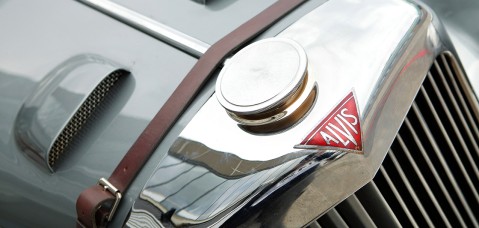This article was originally published in Hiscox Global Insight: http://www.hiscoxlondonmarket.com/magazine/issue15
A classic car, from an Alvis to a Zodiac, could be just the answer if you find your modern vehicle lacking excitement or charm.
The next time you engage ‘park assist’ or ‘adaptive cruise control’ in your modern car, you might think fondly back to the days when driver aids amounted to nothing more than a dog-eared road atlas languishing in the footwell and a thermos flask. Many drivers, young and old, hanker after the authentic driving experience that only classic cars can provide. Owning a classic isn’t only for the seriously loaded though and won’t necessarily break the bank, provided you do your research properly.
In an age when many cars now look and drive alike, the classic car is enjoying a revival, says Brian Page, a valuer of classic cars at Classic Assessments, and himself the owner of a 1937 Wolseley 14/56. “It is a growing market, particularly in the past 15 years. We’re quite nostalgic in this country about our cars, particularly if you think back to the 1950s and ‘60s when the UK was a leading car producer. Many people see classic cars as having more character than their modern equivalents.”
When is a car a classic?
The definition of a classic car is fluid enough for any vehicle from the 1930s onwards to be deemed a classic – cars from before the 1930s are classed as vintage. Even cars that are now just a few decades old are entering the classic market, says Page. “I’ve noticed that the next generation [of drivers] are nostalgic for the 1980s and 90s with cars like fast Fords, Audi Quattros, and BMWs.” Classics can range from an exotic Aston Martin Lagonda to a Ford Sierra, the most utilitarian of sales rep runarounds. If it’s not made any more, you can argue a case for it being a classic car.
What older classic marques are particular popular right now? “There is always a lively market for classic sports cars – particularly in the summer,” says Page. “So that could be something like an MGA, Austin Healey, a Triumph TR or Stag. Of course it depends on budget and if money is no object you’d probably look for something like an Alvis convertible. You’d be spending around £75,000 for a good one though.”
A good classic for less than £10,000
If remortgaging the house to buy a classic doesn’t appeal, there are lots of options available at under £10,000. “If you’re new to the market and have got limited funds, an Austin Healey Sprite, MG Midget, Triumph Spitfire or GT6 are all good options if you want a small sports car. If you’re into saloons, then look for something big and comfortable like a Vauxhall Cresta, Ford Zodiac, or an Austin Westminster,” says Page.
Britain's most popular classic cars*
|
1. Morris Minor |
|
2. Jaguar E-Type |
|
3. Austin Mini |
|
4. Ford Cortina |
|
5. MGB |
*Source: Practical Classics Magazine (December 2016)
But what if you’re more interested in buying a classic car for an investment? Where’s the next Ford Escort Mexico, which originally sold for £1,500 back in the 1970s, but which, because of its rarity, can now fetch well in excess of £25,000? “Over the past four to five months, the classic car market has slowed a little for the older cars, which is not necessarily a bad thing as it allows the true enthusiast to buy the car they really want. But my tips include AC Greyhounds, which have been largely forgotten so could be a good investment, while cars like Triumph 2000s and 2500TCs and 2500Ss are waiting to go up in value,” says Page.
Looking at the more modern end of the market, BMWs are a good option, says Emma Airey from classic car insurers RH Specialist vehicle insurance. “BMW E46 M3s are shooting up in value if you can find one that has been unaltered – many of them have been heavily modified and used for sports like drifting. Early Subaru Imprezas are worth looking at, as are Alfa GTVs.”
Do your homework
Whether buying for the experience of owning and driving a classic or purely for investment reasons, it pays to do your homework before parting with your money. Page says: “Join the relevant owners’ club for the make and model you’re looking at and talk to them. Get a rough idea of values, look at your budget, and, having found a possible target that ticks the boxes, get an independent valuation. You’ll usually be better off buying a really nice MGB than a scruffy Austin Healey for the same price. But, if your heart really is set on an Austin Healey then get the help of a professional valuer when you go to look at a vehicle.”
Another benefit of owning and driving a classic is the insurance cost, which can often be lower than for a modern car. “Owners of classic cars usually take good care of their vehicles and drive fewer miles which makes them a better risk for insurers,” says Airey. “If you’re insuring a classic, make sure you use a specialist company that can offer benefits such as agreed value, laid-up cover – if your classic is off the road for a period of time – and automatic cover for club rallies.”
The advice is buy with care but if you hanker after that authentic driving experience, or just fancy driving something a little different, now is probably as good a time as any to dip your (heel and) toe into the classic car scene.



